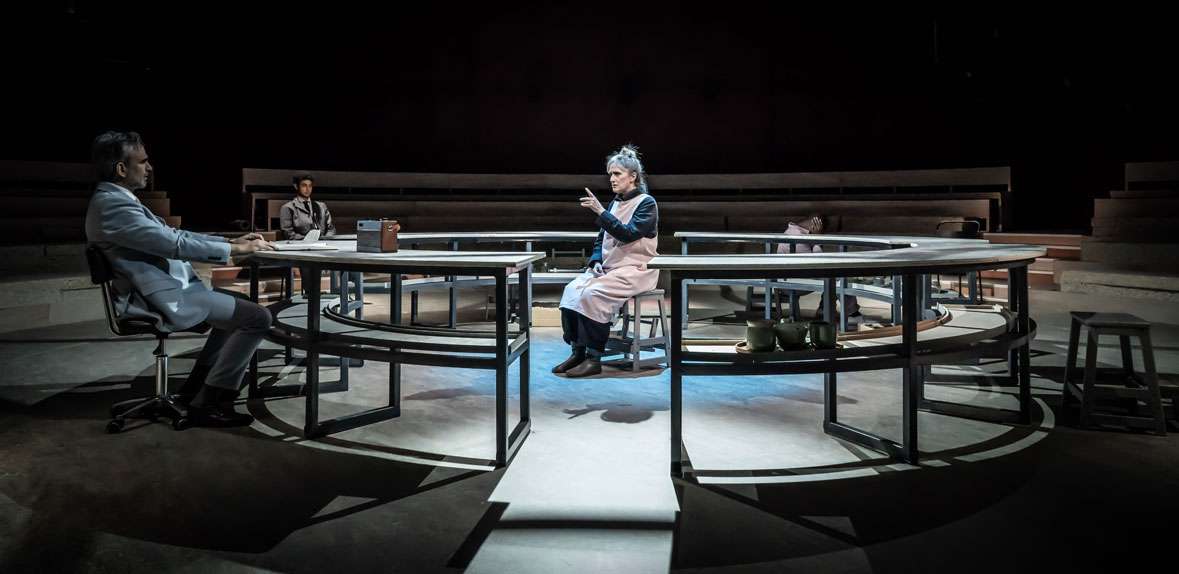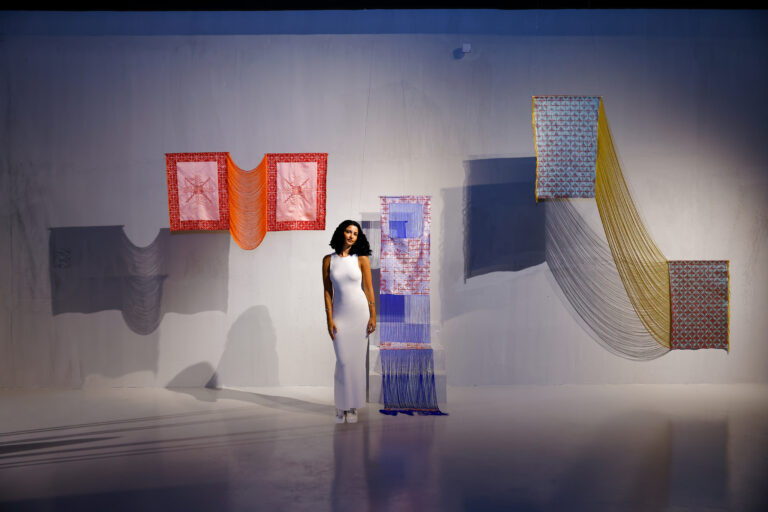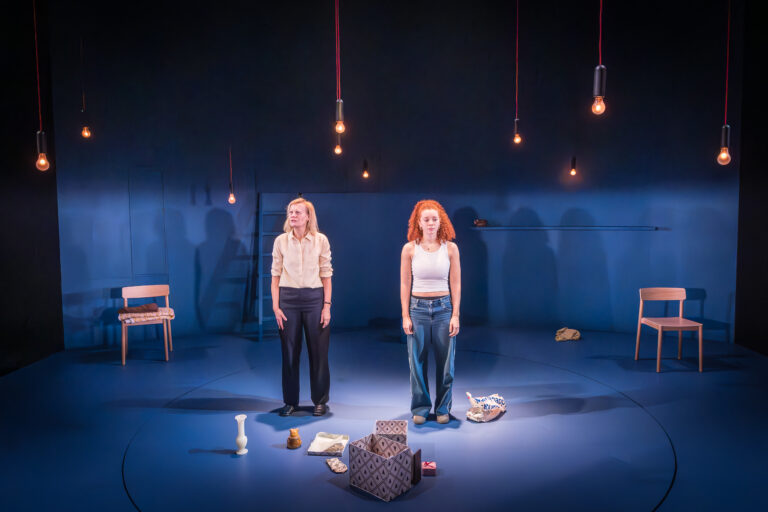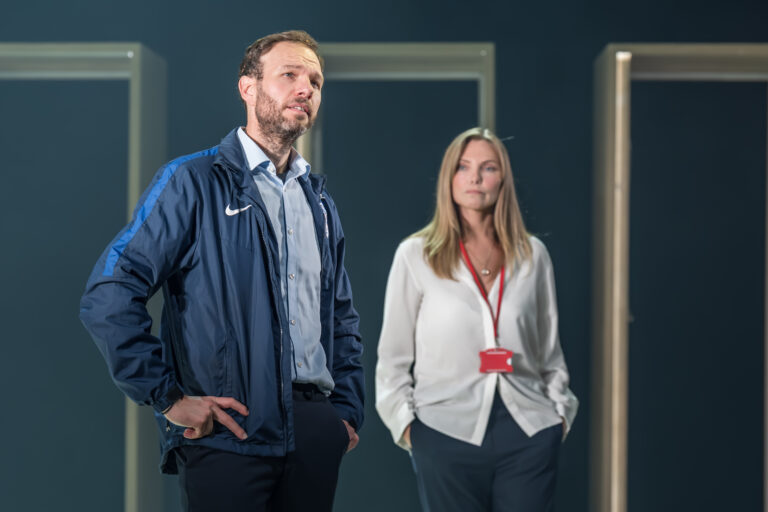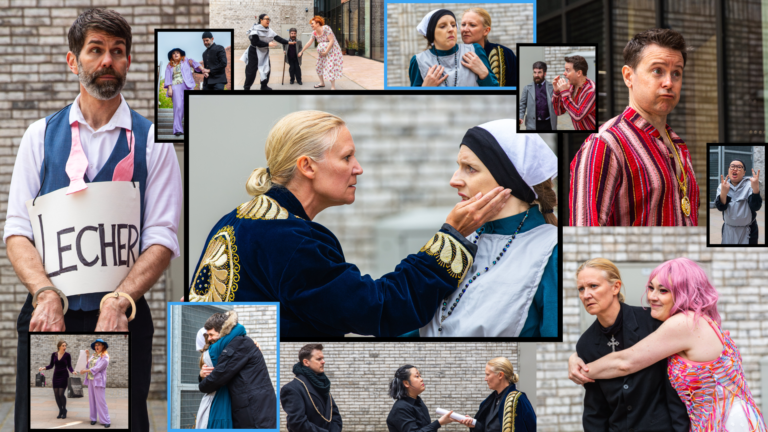When I read the show warnings of mental health crisis, infanticide and sexual violence for ‘Further than the furthest thing’ I was braced for a challenging evening. An air of menace prevails in the opening scene as a man is swept into dangerous water accompanied by eerie vocals. The tension lifts briefly for a gentle domestic moment; the return of a much-loved nephew, Francis, to his aunt and uncle accompanied by a stranger. There was tenderness and comedy as these unsophisticated and isolated island folk attempted to welcome the unexpected visitor, writes Katie Kelly.
The undercurrent of doom quickly returned and never really left for the rest of the play, written by Zinnie Harris and directed by Jennifer Tang. Francis is restless and disaffected with the limits of his island home. Is his introduction of a predatory capitalist to the previously isolated farming community an existential threat?
‘Further than the furthest thing’ isn’t a simplistic tale of an island paradise ruined by modernity. In the end, the biggest threat comes from within. The land itself serves up a volcanic eruption, and the tiny community has long been weighed down by a dark secret. When they are displaced by the volcano and find themselves swapping their ‘patches’ of land for alienating factory work in the strange land of ‘h‘England’, Francis’ visitor becomes both saviour and traitor.
There are obvious parallels with current issues in the play. Destruction of land by climate change and capitalism, the plight of those forced from home to try and make a life in a hostile environment. Not that the island life is romanticised, it is shown in its fragility and exhausting monotony. A precarious existence, dependent on supplies arriving by boat to supplement a meagre diet of potatoes, ‘crawfish’ and h’eggs from sea birds.
Like the island itself, the play doesn’t offer many options. There is an absence of either possibility or even productive anger at its centre, which, along with elements of gratuitous misery, slightly saps the soul, leaving one hungry for hope.
If that all sounds a bit bleak, let me add that most of the seating is backless benches which added to the discomfort for many. However, at the centre of this play is a magnificent character, Aunt Mill, who is stunningly brought to life by Jenna Russell. Mill somehow combines an affectionate and simple character with sharpness and strength which only increases in adversity. If there is a hope for the islanders and this production, then she is it.
Young Vic, 66 The Cut, London SE1 8LZ until 29th April. Times: Mon – Sun 7.30pm; Wed & Sat matinees 2.30pm. Admission: £12 – £56.
Booking: www.youngvic.org


